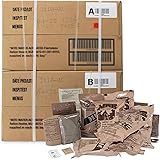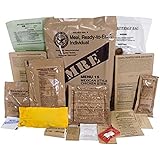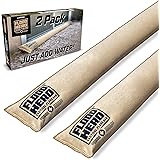Supportive Communities
Local Workshops and Classes
One of the best ways I’ve found to boost my self-reliance skills is through local workshops. Community centers often offer classes on things like gardening, cooking, or even woodworking. I’ve attended a few, and honestly, there’s nothing like learning from someone who’s been doing it for years. Being in a group setting can totally change the vibe, making it more fun and engaging.
These workshops not only provide hands-on experience but also give me the chance to meet like-minded folks. Networking with these people can lead to friendships that help keep me motivated. Plus, it’s comforting to know I can reach out for tips when I need a hand—or recipe—down the line.
Diving headfirst into these classes has helped me pick up not just practical skills but also a sense of belonging in my community. So don’t be shy; find a workshop and jump in! You might walk away with new pals and skills you didn’t know you needed.
Online Communities and Forums
On days when I can’t make it to a workshop, I’ve turned to online communities. The internet is packed with forums and social media groups centered around self-reliant living. I’ve learned everything from homesteading tips to DIY projects just by scrolling through my feeds and asking questions.
These online places are golden because they often include people from all walks of life. Sometimes I’ll stumble upon a post that sparks a new idea or inspires me to try something I’ve never considered. Plus, the sense of support is palpable when you share your own experiences and challenges.
Just remember to sift through information critically; while there are many experts online, there are also a few who might lead you astray! Being in these digital communities has definitely made me feel more confident in my journey toward self-reliance.
Mentorship and Networking
I’ve found that having a mentor can be a total game-changer. When I was starting out, I reached out to someone in my community who had a reputation for being a jack-of-all-trades. It was so helpful—having someone to guide me through processes I had no clue about.
A mentor can provide personalized advice you just can’t get from a book or a video. They’ve been in your shoes and can share what worked for them (and what didn’t). Their insights can save you a ton of time and frustration, which is something I really appreciated when tackling new skills.
== > What if ... Get a FREE Subscription to PREPARE
Also, networking with people who share your interests is a fantastic way to learn. Attend local meetups, farmers’ markets, or fairs. You’ll find that most people are eager to share their knowledge; I know I am!
Educational Resources
Books and Guides
Reading has been a cornerstone of my self-reliance journey. I can’t count the number of books I’ve devoured on topics ranging from permaculture to canning. Each book adds a little piece to my puzzle, helping me feel more equipped to tackle my challenges.
I usually hit my local library or scour secondhand bookstores for hidden gems. There’s something cathartic about flipping through the pages and discovering tips that resonate with me. Plus, I love jotting down notes in the margins—makes it feel like a personal dialogue with the author!
No matter your learning style, you’re bound to find something that hits home for you. Just ensure you’re picking reputable sources—some books are pure gold, while others might just fluff your bookshelf.
Online Courses and Tutorials
Online courses have been a lifesaver for me. Whether it’s mastering the art of sourdough or understanding basic plumbing, websites like Coursera and Udemy have a plethora of classes. There’s something almost magical about having experts teach you from the comfort of your home.
I often grab a notebook, sit back, and take notes while I watch. YouTube is also a goldmine—seriously, you can find tutorials on nearly every skill you could imagine. It’s like having a virtual library at my fingertips!
Just remember to practice, practice, practice! Watching someone do it is one thing, but getting your hands dirty is where the real learning happens. Dive into those videos, follow along, and have fun with it!
Gardening and Home Projects
There’s something incredibly satisfying about growing your own food or tackling home improvement projects. I started with a small vegetable garden, and seeing my plants flourish was an unforgettable experience. Plus, nothing beats the taste of fresh produce you’ve grown yourself!
Gardening had its learning curves, no doubt—I’ve experienced my fair share of wilted plants and pest problems. But through trial and error, I acquired skills that empower me to provide for myself and my family in a whole new way.
As for home projects, I decided to take on small renovations. YouTube became my best friend again, guiding me through everything from building a bookshelf to mending leaky faucets. The best part? There’s no substitute for that sense of accomplishment when you finish a project!
DIY Skills
Sewing and Mending
Truth be told, I never considered myself a crafty person until I started sewing. It began with simple repairs, but soon I was making my own clothes! This skill is not just fun; it also saves money and keeps me from relying on stores for every little item.
Initially, I signed up for a sewing class at a local fabric shop. The teacher was fantastic, and I quickly learned the basics. Now, I watch tutorials online when I want to tackle a new project. It’s all about patience and practice—I’ve torn my fair share of seams!
Being able to mend my own clothes or even create new items from scratch feels empowering. It gives me a sense of control over my resources and encourages creativity.
Get Preparedness and Self-Reliance Tips. Subscribe Now!
Cooking and Preservation
Cooking was another area where I felt lacking until I decided to embrace it. I started trying new recipes every week, experimenting with ingredients I hadn’t used before. The kitchen became my playground, and seeing my skills grow has been rewarding.
Food preservation is a crucial aspect of self-reliance that I didn’t initially consider. Learning to can and pickle has allowed me to store seasonal harvests and reduce waste. Plus, it’s cost-effective—who doesn’t love saving a few bucks?
The recipes and preservation techniques I’ve picked up have transformed my approach to meals. It’s not just about cooking; it’s about being resourceful and creative with what I have. And the taste of homemade goodies? Unbeatable!
Basic Home Repairs
Basic home repairs were daunting before I took the plunge. I’m handy, but there was definitely a learning curve. When my sink started leaking, I did some research and rolled up my sleeves. YouTube tutorials were great for that DIY fix!
Start small! I began with fixing squeaky doors and then delved into more complex projects. Each time, I gained confidence and learned to solve problems without panicking. It’s all about trial and error, and yes, sometimes things went not according to plan! But hey, that’s part of the learning, right?
Now, I can tackle various repairs around my home, which frees me from having to call a repairman for every little thing. It’s liberating to know I can handle most home-related challenges myself.
Personal Development
Building Confidence
Through this journey, building my confidence has been just as crucial as learning practical skills. I remember the first time I successfully preserved vegetables; it was an exhilarating moment! I’ve realized that the more I try new things, the more my confidence grows.
Each little victory bolsters my mindset. Whether it’s nailing a new recipe or fixing a leaky faucet, recognizing those achievements helps me push further. It’s like lifting weights for my mind—each time, I get a little stronger.
Your mindset can make or break your self-reliance journey. I always remind myself that it’s perfectly okay to make mistakes—every expert was once a beginner, and the best part is that every stumble teaches me something new!
Setting Goals
Setting clear, achievable goals gives direction to my self-reliance practice. I started with small goals, maybe just focusing on one new recipe or skill each week. Slowly but surely, I’ve built a robust toolkit of skills.
It’s incredibly satisfying to check off those goals! I even started a simple journaling habit to track my progress. Reflecting on where I started versus where I am now often puts a grin on my face—enough to keep me motivated!
Goals keep me accountable. Plus, it’s a great way to celebrate small wins along the way. Rewarding myself for hitting each target makes the journey enjoyable and instills a sense of achievement.
Resilience and Adaptability
Through my self-reliance journey, I’ve learned the value of resilience. Things don’t always go according to plan, and I’ve found myself in some sticky situations—like the time my bread didn’t rise! Learning to adapt is a huge part of this process.
Each setback teaches me to pivot. Instead of wallowing, I now view challenges as opportunities to think outside the box. This mindset shift has been essential for personal growth and has made me more flexible in approach.
Being adaptable means I can handle whatever comes my way. Each success and failure contributes to a broader understanding of self-reliance, ultimately making me stronger. With resilience, I embrace uncertainties with open arms!
FAQ
1. What are some skills I should focus on for self-reliance?
Some foundational skills include gardening, cooking, sewing, basic home repairs, and food preservation. Start with what interests you the most!
2. How can I find local workshops?
Check community centers, libraries, or local universities. Websites like Meetup can also help you find classes nearby.
3. Is it necessary to have a mentor for self-reliance?
No, but having a mentor can provide valuable insights and support. If you can find one, it’s a great asset!
4. Are online courses effective for learning self-reliance skills?
Absolutely! Online courses and tutorials can provide structured learning with experienced instructors. Just remember to practice what you learn.
5. How do I stay motivated on my self-reliance journey?
Set manageable goals, celebrate small wins, and connect with communities for support and inspiration. Motivation can often be nurtured through camaraderie!






